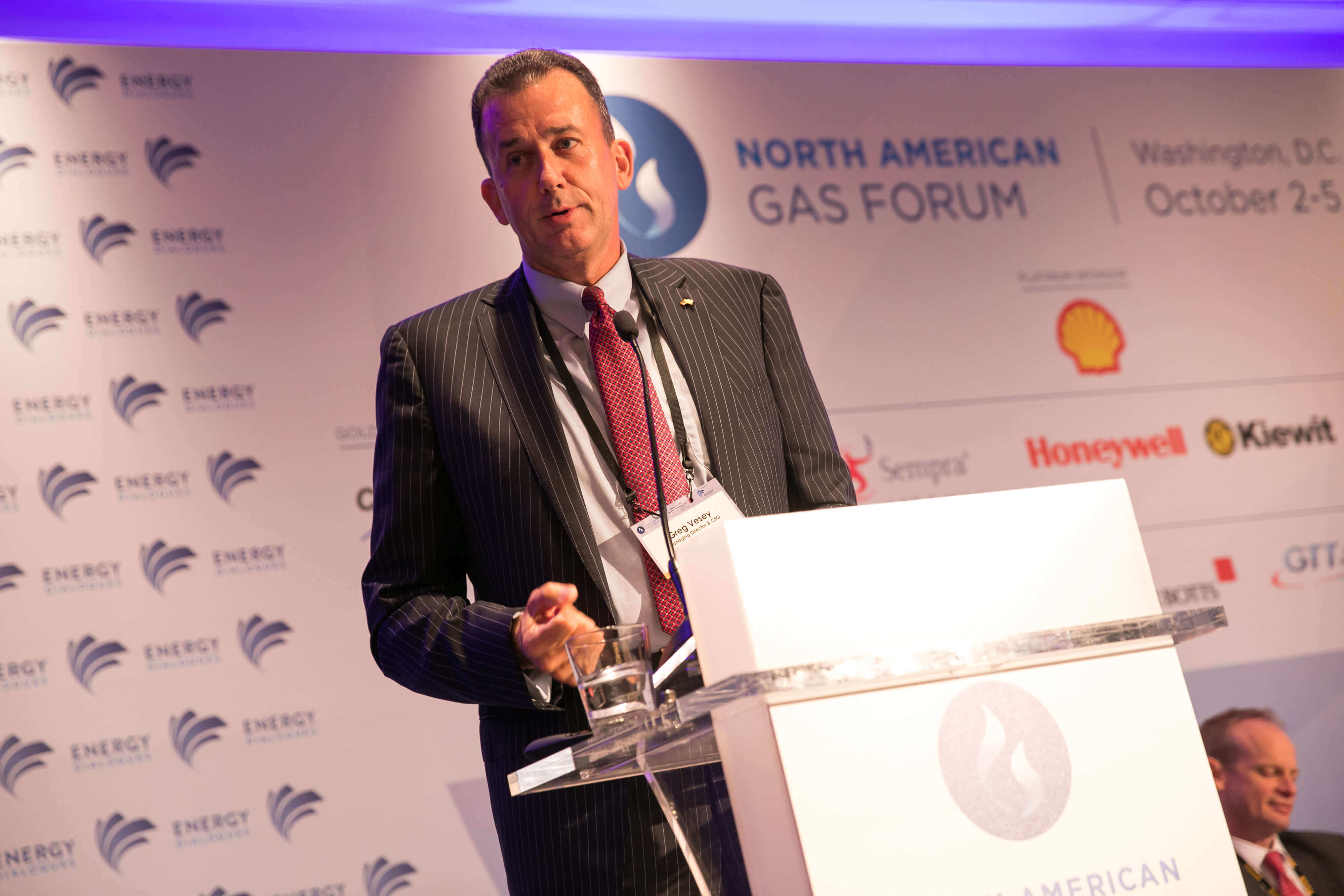Speaker Q&A Series – Greg Vesey, Managing Director and CEO, LNG Limited
With the North American Gas Forum approaching, The Energy Dialogues team is running a Speaker Q&A Series to bring first-hand content from our speakers to our network.
We had the opportunity to speak with Greg Vesey, Managing Director and CEO of LNG Limited and hear his thoughts on LNG and how it might change the gas industry, as well as what’s next for LNG Limited.
Q: How will LNG change the gas industry for the US and for the global market and what is next for LNG Limited?
The US is poised to become one of the largest exporters of LNG within the coming years. LNG will not so much change the gas industry in the US, but should strengthen it by bringing new market opportunities that will keep volumes growing and conditions favorable for continued exploration and production. Additionally, the maturity of the North American energy markets over the last 5+ years offers confidence of both price and supply stability. This stability, coupled with highest degree of transactional liquidity of any energy commodity, makes North American natural gas very attractive for demand centers globally.
For LNG Limited, our focus is completing the offtake agreements for Magnolia LNG that will allow us to start construction of the terminal. As a developer, getting our first project in production is critical for us, and as a technology provider it is extremely important to get our proof-of-concept in the marketplace. In addition, we need to succeed at continued development of our Bear Head LNG project, currently focused on coupling gas supply and pipeline infrastructure to ultimately provide an outlet for Western Canada resource owners to monetize their natural gas.
Q: What are some of the underserved markets that you feel US LNG can provide natural gas to?
The new markets we see are threefold: as a replacement for coal in power plants around the world; serving new markets that are developing in places like China, or smaller markets where the developing FSRU market now makes LNG imports practical; and helping existing customers who are interested in diversifying their portfolio of supply.
Q: When do you feel will be the end of the low price cycle for natural gas and what factors will lead to it?
Natural Gas: It is not easy to see an end to this cycle, but more likely we are experiencing a new normal. North America’s robust reserves create a unique global opportunity to manage price volatility. Efficiencies in the exploration and production community allow producers to react quickly to market fluctuations, and technological improvements allow producers to exploit resources and provide confidence in their ability to bring energy to market faster than ever imagined. This provides a stable environment and allows for market conditions that are favorable to the entire energy value chain.
LNG: The end of low pricing for LNG will happen when the oversupply of LNG in the world market is depleted. Currently, global demand is projected to outstrip LNG supply in the early 2020s, although there are various forecasts that place this shift anywhere from 2020 to 2025. Long construction cycles and equipment lead time create a need for decision making and project sanctioning 4-5 years prior to plant start-up, so the next wave of LNG projects will need to reach financial close from late 2017 to 2018.
Q: How does gathering the representatives at NAGF from across the natural gas value chain to discuss their objectives, challenges and opportunities add value from your perspective?
It is very important to understand the various opinions on market factors, political influences, etc., to keep North American gas competitive. It also offers early interest in potential partnership opportunities. We believe natural gas will become a globally traded, homogenous commodity in the next ten years, and forums like NAGF are an excellent venue for decision makers to develop and embrace this new market.






